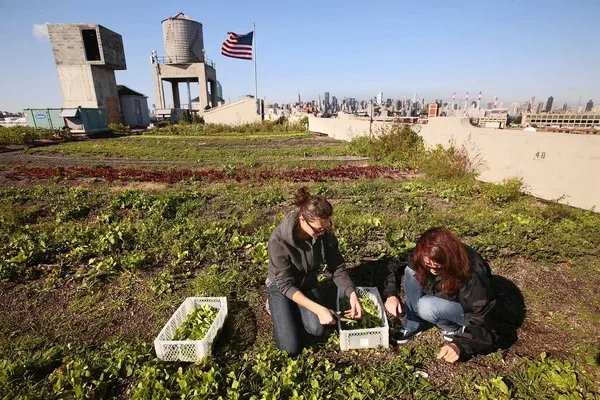This study analyses case studies of agri-food system innovation in different socio-economic, cultural, and political environments (Brazil, New York and Senegal) to determine common factors that help grassroots projects scale up successfully.

The paper argues that decision-makers should learn from different types of initiative in tandem rather than compartmentalising them into those that are social versus technological, top-down versus bottom-up, or from the Global North versus the Global South.
The case studies were:
- The Brazilian Landless Movement (MST) which promotes land reform, agroecological farming, and peasant-led producer cooperatives
- New York City’s food movement promoting food justice, health equity, and fair labour practices, and
- The Ecovillage Movement of Senegal promoting soil restoration, crop diversification, alternative energy, and reforestation.
Information was collected through analysis of peer-reviewed research, government reports, and NGO policy evaluations, as well as interviews with academics, government officials and practitioners.
- Analysis of the three case studies found ten common strategies used to build and expand changes in the agri-food system. The common strategies are:
- Reframe the key issues at stake and emphasise the social benefits
- Remain open to experimentation and new ideas
- Forge diverse cross-sectoral partnerships and coalitions
- Amass political support and affect policy
- Create self-sustaining new markets
- Nurture and encourage women’s participation and leadership
- Secure access to land and land tenure
- Build and maintain autonomy from mainstream systems and institutions to avoid co-optation and elite capture
- Mobilise public institutions to change rules and increase citizenship rights
- Be actively engaged and participate in policy-making processes
The study recommends five policies for governments, multilateral agencies, and NGOs to support agri-food movements that aim to build healthy, equitable, and sustainable communities:
- When resources are scarce, support the movement in developing locally relevant alternatives
- Include movements in public debate and policy-making
- Support movement autonomy and self-sufficiency
- Support movement value-added ventures even if they challenge existing regulations
- Support flexibility instead of rigidly adhering to policies and indicator frameworks
Abstract
To effectively address the sustainability crises our planet faces, decision- makers at different levels of government worldwide will have to get a handle on three key challenges: learning from Global North and South initiatives in tandem, taking stock of social innovations alongside technological fixes, and nurturing grassroots sustainable development initiatives next to, or in place of, top-down corporate and government interventions. Current scientific literature and grant-making institutions have often reinforced the compartmentalized fashion in which we learn and draw policy lessons from North/South, social/technical, and bottom-up/top-down sustainability initiatives, including local food system innovations. The strategic levers for global sustainable development lying in-between are thus left out. This paper uses exploratory, multiple case study analysis to address this omission. By concurrently drawing lessons from grassroots innovations in Brazil, New York, and Senegal—three profoundly different socioeconomic and geographic contexts—we identify common pressure points that have enabled local communities to drive system-wide transformations toward climate adaptation, resilience, and sustainability in the agri-food system. The findings of this paper would be of value to scholars, government officials, and community groups engaged in agri-food systems sustainability and interested in the processes of change that have allowed budding innovations to stabilize and scale up.
Reference
Ilieva, R. & Hernandez, A., 2018. Scaling-Up Sustainable Development Initiatives: A Comparative Case Study of Agri-Food System Innovations in Brazil, New York, and Senegal. Sustainability, 10(11), p.4057, https://doi.org/10.3390/su10114057
See related research: What influences the diffusion of grassroots innovations for sustainability? Investigating community currency niches and Combining transition studies and social movement theory: towards a new research agenda.
Read the full paper here. See also the video Screencast: Agroecology and Sustainable Food Systems (Alexander Wezel) in the Foodsource video library.




Comments (0)